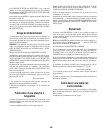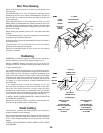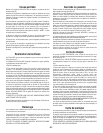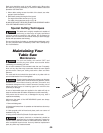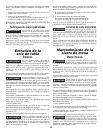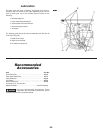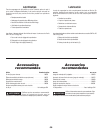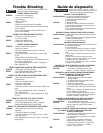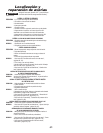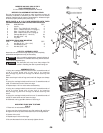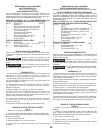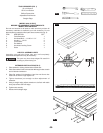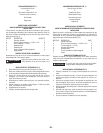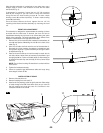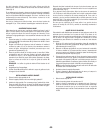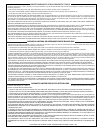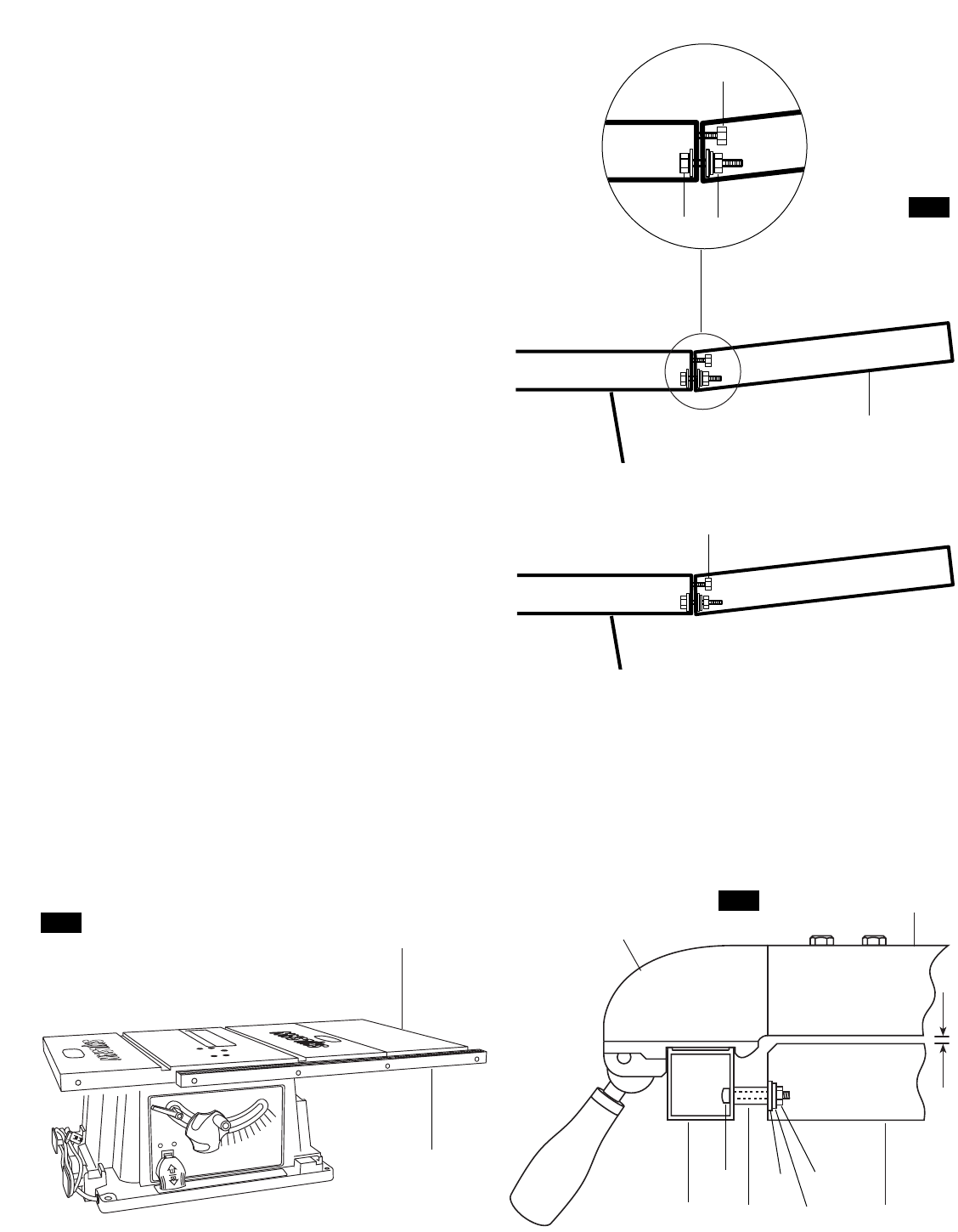
After the table extension 1 is attached to your table saw, use a
straight edge to check if the extension is flush with the table
saw surface (Fig. 4).
If adjustment is necessary, loosen the two 1/4”-20 mounting
bolts 2 just enough so you can raise or lower the extension
using the two hex head leveling screws 6. To raise: rotate
leveling screws 6 (counter-clockwise). To lower: rotate leveling
screws 6 (clockwise).
Once the table surfaces are flush, tighten the two 1/4”-20
mounting bolts 2 and continue assembly by mounting the front
rail.
FRONT RAIL ADJUSTMENT
This extension is designed to accommodate the existing rip fence
provided with the table saw. If desired, the front rail can be
repositioned allowing the rip fence to be utilized along the entire
length of the extension. The scale provided is to be utilized if the
extension is assembled to the right side of the table.
1. Remove the (4) four screws 8, flat washers 9, lockwashers 11
nuts 10 and spacers 12 holding the rail 13 to the front of the
table (Fig. 5).
2. Move the rail 13 to be flush with the end of the extension 1.
Re-install the (4) four screws, flat washers, lockwashers, nuts
and spacers as shown. Tighten hardware just enough to allow
for adjustment (Fig. 6).
3. Place rip fence on table as it would normally be used, but do
not clamp down. Adjust front rail vertically so that there is just
enough gap 16 for a piece of folded paper (2 thicknesses) to
fit between the table top and the body of the rip fence 15 (at
the front).
NOTE: The rip fence housing 17 should be in contact with the
front rail 13.
4. Tighten the hardware securely.
5. Check for specified gap 16 between table and body along
entire length of front rail 13.
INSTALLATION OF SCALE
1. Remove old scale from rail.
2. Remove backing from new scale 7.
3. Install scale 7 by starting at the far right hand side. Place edge
of scale at edge of rail 13. Press down firmly as you move to
the left making sure that the scale 7 is centered in the
recessed channel of the rail 13.
13
8
12
9
11
10
14
17
16
15
6
FIG. 4
1
2
3
6
FIG. 5
62.
0
º
5
º
1
0
º
1
5
º
2
0
º
2
5
º
3
0
º
3
5
º
4
0
º
4
5
º
FIG. 6
13
1



